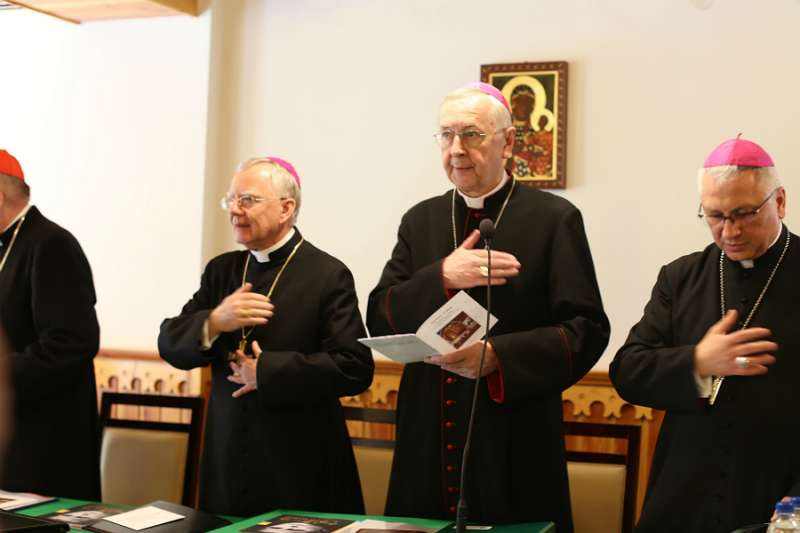Pope Francis’ thought on the family reveals the importance of “tenderness and closeness” in pastoral ministry and should be read in the spirit of continuity with previous popes, the Polish bishops said in their pastoral guidelines for Pope Francis’ apostolic exhortation Amoris laetitia.
When read in this spirit, Amoris laetitia “not only includes, but above all, completes and updates the previous statements of the Church’s Magisterium on marriage and the family,” the Polish Bishops’ Conference said in guidelines they adopted June 8 at their plenary assembly.
The Polish bishops said the pope’s exhortation is “an expression of his concern for the good health of marital love in the family.”
While debate over the reception of Holy Communion by the divorced-and-remarried has dominated some discussions of the exhortation, the Polish bishops’ conference press office said the guidelines document “does not address the issue of Holy Communion for people living in non-sacramental relationships.”
The guidelines show Pope Francis’ teaching in the context of previous Popes, such as Bl. Paul VI’s Humane vitae, St. John Paul II’s writings such as Familiaris consortio, Reconciliatio et paenitentia, and Veritatis splendor, and Benedict XVI’s Deus caritas est and Sacramentum caritatis.
Further, Pope Francis recognizes that “pastoral and missionary conversion in the promotion of marriage and the family cannot ignore those in need and living in difficult situations,” the guidelines said. In his exhortation, the bishops said, is “an inspirational actualization of the ‘Gospel of the Family’ that the Church constantly announces and attempts to pursue.”
The Polish bishops said Pope Francis’ pastoral criteria for the engaged, spouses and families, and those in irregular relationships have four elements: “acceptance, accompaniment, discernment, and integration.”
Amoris laetitia and the follow-up discussion have helped bring to view “the richness of the Church’s activities in Poland supporting fiancées, spouses, and families.” These have also made the bishops aware of “the need and urgency” for pastoral care for engaged couples and families who are often affected by “the crisis of faith and love.”
For the Polish bishops, discernment for those in irregular situations should first work to establish whether the first marriage is null. In a situation where nullity cannot be established, they said, “it is necessary to continue the pastoral analysis.”
Discernment can still lead to “different, ever deeper forms of integration with the ecclesial community.” It should be “individualized, consistent, and long-term spiritual guidance.”
“We must characterize the pastoral ministry with closeness, a respectful and compassionate look that simultaneously heals, liberates, and encourages growth in Christian life,” the bishops said.
Pastoral love is ready to go out to meet everyone, especially those who have left the Church. An evangelical community must be “supportive to a man in all his experiences, no matter how difficult or lengthy these may prove to be.” A person’s integration with him or herself and with the Church community is the goal of pastoral discernment.
The bishops’ guidelines also reflected on how pastors should respond to those whose marriages appear to have failed, saying, “a loving look and support should be shown to people whose spouses have abandoned or left them, but who are now making efforts to return to the sacramental spouse, through continuous love, loyalty, and prayer.”
This pastoral approach must also be shown to those faithful who have entered into civil unions and whose previous marriage bond is an obstacle, but who try to live “in a Christian way.” Such people are “raising their children in faith, and, wanting to fully participate in the sacrament of the Eucharist, have decided to live as brother and sister.”
Discussing pastoral discernment and “the logic of integration” in the eighth chapter of Amoris laetitia, the Polish guidelines reflect on the pope’s attention to the “countless diversity of situations” of those who have divorced and entered a new civil union. The bishops say Pope Francis speaks about “the need to refer the general norm to real people and their specific situations. In this way, he develops the thought of John Paul II, who pointed to the need to take into account the complexity of the situation of divorced faithful living in new civil unions.”

